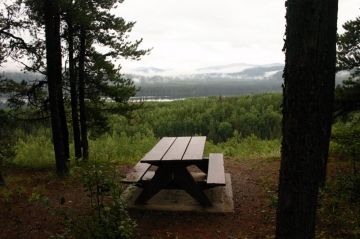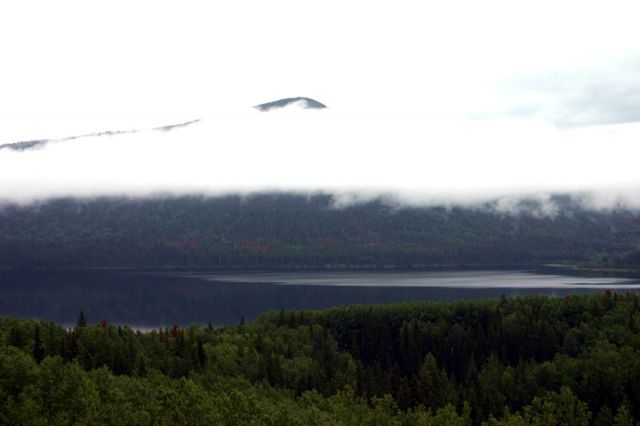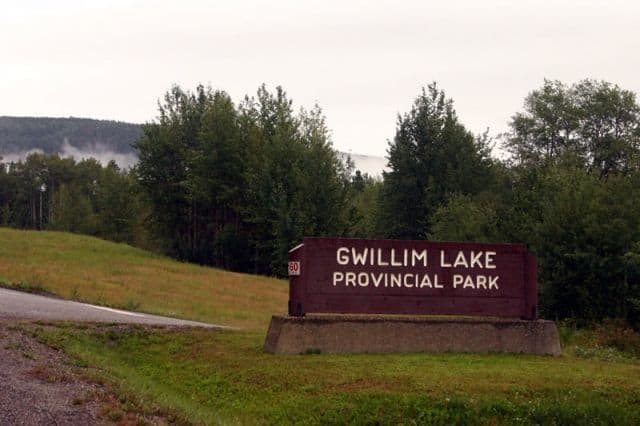Gwillim Provincial Park

Park Size: 32,458 hectare
Park Amenities:
Gwillim Provincial Park in Tumbler Ridge, British Columbia, Canada is a 32,458 hectare park deep in the Hart Foothills eco system of the Rocky Mountain Range. Gwillim Provincial Park is popular for many who enjoy camping, hiking, snowshoeing, cross country skiing, canoeing, fishing, windsurfing, water skiing, rock climbing, wildlife viewing, horseback riding and backpacking.
The best access point to the park is via the provincial campground resting on the shores of Gwillim Lake. The RV and tenting campground is a popular one in the region because it is located in a rugged scenic setting surrounded by a diverse mixture of trees including Lodgepole Pine, White Spruce, Trembling Aspen and Balsam Poplar.
Once entering the campground there is a parking lot on your right with an information sign, outhouses, trails and a row of picnic tables providing views of Gwillim Lake and the Rocky Mountains. The second parking lot is further down the road near the day use area, boat launch and campground.
In the campground is a playground, outhouses and trails accessing the lake, the swimming area and a viewpoint offering up more views of the Rocky Mountains. The lake is the main recreation destination in the park used for pleasure and for relaxation. Many visit the lake to catch up on some fishing hoping to catch bull trout, arctic grayling, mountain whitefish, lake trout and northern pike.
Located near the campground is a set of trails that lead deeper into the park to areas like Elephant Ridge. Backpackers and horseback riders explore these longer trails in the summer while cross country skiers and snowshoers take over in the winter. At the higher alpine levels, as the trail goes deeper into the park, the landscape changes. Soon Engelmann Spruce and Subalpine Fir trees start to appear followed by flowering alpine meadows.
Backpackers must be prepared for wilderness camping conditions. The park permits backcountry hiking but does not provide designated wilderness campsites. So please camp near the trail therefore causing minimal damage to the environment and sensitive plant life in the area. Pack in what you pack out. Leave no footprint.
Be aware the park is in a wilderness setting which is home to many wildlife species like bears, moose , deer and many birds. Be aware and be prepared. Birdwatchers will be happy to hear that located at the east end of the lake is a wetland area popular with song birds, birds of prey like Bald Eagles and waterfowl.
Explore Gwillim Provincial Park in Tumbler Ridge, British Columbia, Canada
Address:





